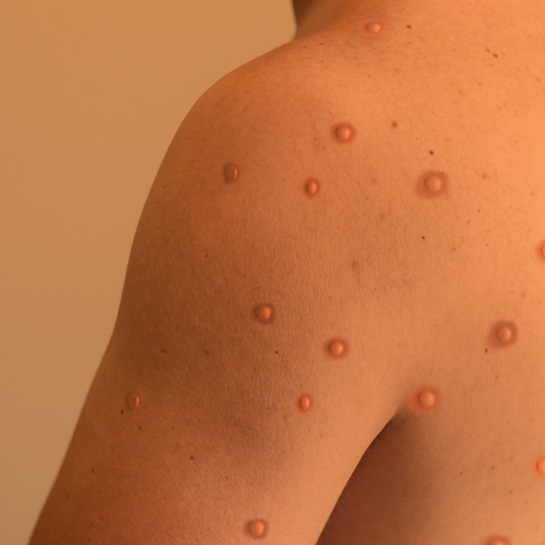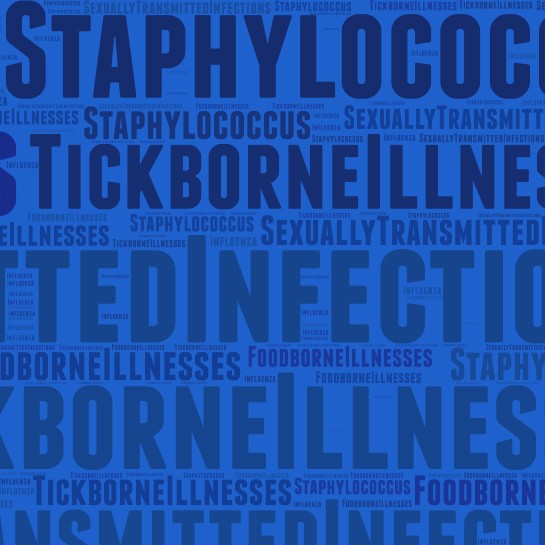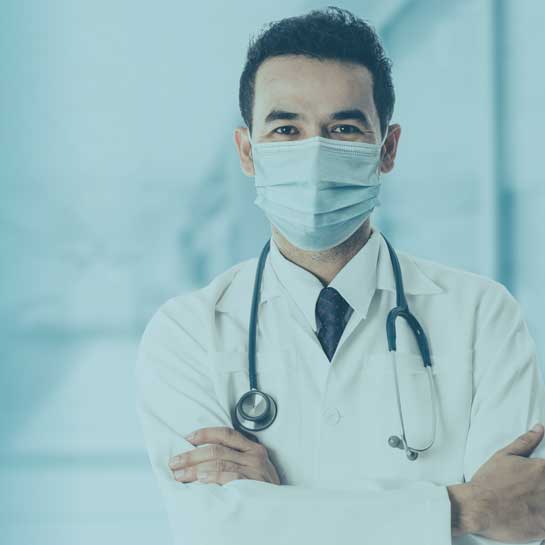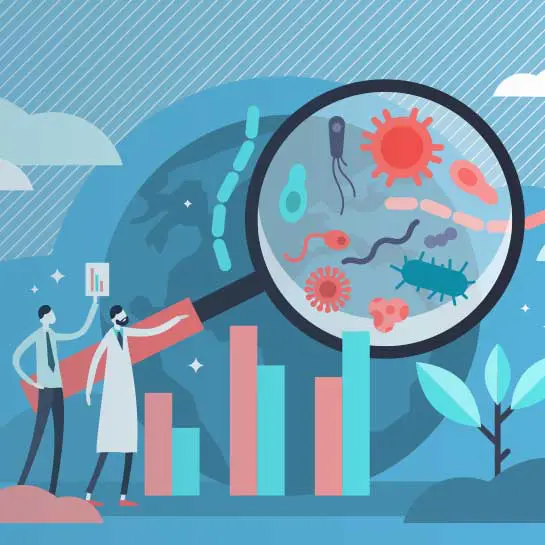Monkeypox Symptoms
and Treatment
What is monkeypox?
Monkeypox (or mpox) is a rare disease caused by infection with the monkeypox virus. Monkeypox virus belongs to a group of viruses that infect humans and animals called orthopoxviruses, which includes the better-known smallpox virus. Monkeypox symptoms are similar to smallpox symptoms, but they are milder and rarely fatal. Monkeypox is not related to chickenpox.
Monkeypox is found mostly in areas of Africa, but has been seen in other parts of the world. In summer 2021, a case of monkeypox was found in a U.S. resident with a recent travel history from Nigeria. By spring 2022, monkeypox cases were reported in regions outside of Africa, including the United Kingdom, Europe, Australia, and the Americas. An ongoing multi-country outbreak of monkeypox virus was confirmed and declared a public health emergency of international concern by the World Health Organization in July 2022
What are the symptoms of monkeypox?
Monkeypox virus causes two major symptoms that are almost universally present – rash and flu-like symptoms. Flu-like symptoms include fever, chills, headache, muscle aches, swollen lymph nodes, and fatigue. The rash is commonly located on or near the genitals (penis, testicles, labia, and vagina) or anus, and could be located on other areas of the body such as hands, feet, chest, face, or mouth. The rash starts as flat, red bumps that turn into painful, fluid-filled blisters which eventually scab over before healing. It may take several days or weeks after exposure for people with monkeypox to develop symptoms, not everyone infected with the monkeypox virus will experience all of its symptoms, and the order in which symptoms develop can vary.
How is monkeypox diagnosed?
A laboratory test of a sample taken from a bump or blister can confirm whether or not you have monkeypox. A blood test can also detect the presence of the monkeypox virus or antibodies your immune system produces to fight against it.
How does monkeypox spread?
Monkeypox spreads through close, personal, skin-to-skin contact including sex and sexual intimacy, hugging, massage, or kissing and other prolonged face-to-face contact. While the risk is considered low, it is possible to contract the monkeypox virus through contact with recently contaminated objects and surfaces like clothing, bedding, or linens.
What can I do to protect myself from getting monkeypox?
Data suggest that sexual transmission has caused the spread of the majority of cases in the current monkeypox outbreak, however anyone who has been in close, personal contact with someone who has monkeypox is at risk. The following steps can help you protect yourself:
- If you, someone in your household, or someone you’ve been in close contact with develops an unexplained rash that looks like monkeypox seek medical attention as soon as possible. Isolate within the home and abstain from sex and close contact with others until an answer is found.
- Avoid close, skin-to-skin contact with people who have a rash that looks like monkeypox.
- Avoid contact with objects and materials that a person with monkeypox has used.
- Wash your hands often.
- Get vaccinated.
- For people traveling to Central or West Africa, avoid contact with animals that can spread the monkeypox virus, usually rodents and primates.
Who should get vaccinated?
Widespread vaccination is not currently recommended. However, vaccination is recommended for people who:
- Have been identified by public health officials as a contact of someone with monkeypox.
- Are aware that one of their sexual partners in the past 2 weeks was diagnosed with monkeypox.
- Have had multiple sexual partners in the past 2 weeks in an area with known monkeypox cases.
- Have a job that may expose them to orthopoxviruses, such as laboratory workers, healthcare workers, and public health workers.
Get Monkeypox Treatment in New Jersey at ID Care
Monkeypox is a rare, usually self-limiting disease with symptoms lasting 2 to 4 weeks, but severe cases can occur. At ID Care, our physicians are trained to provide comprehensive care for all infectious disease, including monkeypox. Our infectious disease expertise places us at the forefront of care which includes identifying the symptomatic rash, differentiating monkeypox from other infections, and testing for the virus in the office setting. If treatment is indicated in either the outpatient or hospital setting, our specialists prescribe and manage your antiviral treatment plan. If you believe you have been exposed to or have the monkeypox virus, contact us at one of our ten convenient locations to set up an appointment or learn more about our services.




